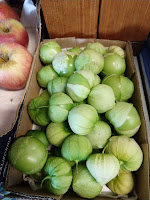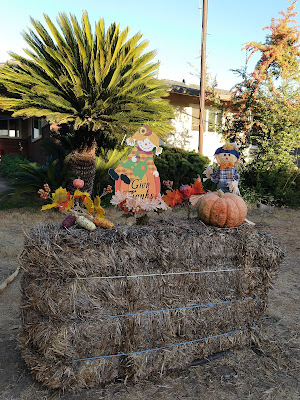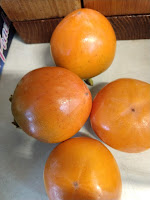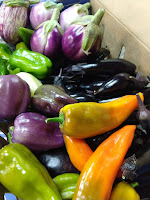MERRY CHRISTMAS AND
HAPPY NEW YEAR
The year is quickly coming to an end. We will soon be welcoming 2024.
Here at the farm we are still selling 2023 crops. Apples, Asian pears, and persimmons will make it to 2024 as will mandarins.
Mandarin production in Placer County is low this year. Much of the crop is on the small side but the taste and flavor are still there. We have sourced mandarins from Pleasant Hill Orchard in Newcastle.
The Hoshigaki process is starting to wind down. We stopped peeling fresh persimmons a week ago. Now we are tending the end stages. The weather has turned moist and cold. This slows the process. We may be at this for another month before all is safely in the freezer. You can now come by to pick up hoshigaki at the farm stand. If you are interested in more than two pounds it is advised that you give us a call first. We are continuing to take new mail orders for hoshigaki.
HOURS:
Tues through Sat 10:00 am to 6 pm
Sunday 11:00 am to 5:00 pm
CLOSED ON MONDAYS
Here is what we have at the Farm Stand from Otow Orchard
Hoshigaki: These are whole dried persimmons. They were hand massaged while they dried over a period of four to eight weeks. Some are firm, others are soft and moist. All are coated with naturally formed white persimmon sugar. No sugar added and no preservatives used. We began peeling persimmons in October. The hoshigaki is available in the farm stand. You may contact us for on-farm pick-up orders. (916) 791-1656 or email at otowochard@yahoo.com. For mail orders please use our mail order form . Mail order shipments have begun. Today (Dec. 20), we are sending out orders received at the beginning of November.
Apples:
Fuji: Known for being sweet juicy and always crisp.
Granny Smith: A green sweet tart apple. Popular pie apple. Special characteristic is that it stays white after being cut, it does not turn brown after being cut.
Pink
Lady: Crisp and juicy apple with fantastic balance of sweet and
tartness. The skin is a beautiful pinkish red. Refreshing and very
flavorful. Limited supply.
Okusankichi: Large winter Asian pear. It is a good keeper. It is sweet with a hint of tartness. Juicy and crisp.
Persimmons:
Hachiya: Tall acorn-shaped persimmon. It is astringent until soft and jelly-like. It becomes very sweet soft and delicate. Fresh eating right out of its skin or often used for baking cookies and pudding. Used for making hoshigaki.
Gyombo:
Tall Acorn-shaped persimmon with grooves down the four sides of the
fruit. Like the Hachiya persimmon, it is astringent until soft and
jelly-like. It becomes very soft, juicy, and sweet.
Fuyu:
Apple type persimmon. Can be eaten hard and crisp. These are always
sweet and a favorite among our customers and future customers. At this
time of year they are hard and crisp. Later in the season or if held
for a period of time they will become more orange-red and the flesh will
become tender and sweeter. Used for fresh eating and in salads. Currently being sold by the bag and the box.
Maru, Chocolate, and Nagamaru: These are the brown fleshed persimmons. Back in April when the trees were in bloom, the bees were buzzing. If the flower was fully pollinated, seeds would form and give off
ethylene gas to make the flesh brown and sweet. The problem arises
when a flower is only partially pollinated and less than half of the
seeds form. This fruit will be only partially sweet. It's always a
risk. We recommend cutting the fruit and eating only the brown, sweet
flesh. Some varieties will sweeten as they soften.
If the flower was fully pollinated, seeds would form and give off
ethylene gas to make the flesh brown and sweet. The problem arises
when a flower is only partially pollinated and less than half of the
seeds form. This fruit will be only partially sweet. It's always a
risk. We recommend cutting the fruit and eating only the brown, sweet
flesh. Some varieties will sweeten as they soften.
⚘ Calendula Salve and Lip Balm: Wonderfully thick salve for healing dry skin, bug bites and scrapes.
Chili Peppers: Aji Amareto, Buena Mulata, Jalapenos, ---All limited supply.
Pomegranates: Sweet White Pomegranates and tart red Wonderful Pomegranates. Limited supply.
English Walnuts: In the shell. You have to crack them.
Here is what we have from other producers:
Pleasant Hill Orchard in Newcastle, CA, Conventional practices. Satsume mandarins. Flavor is outstanding. Sweet, juicy and a hint of citrus tang.
Top O' the Hill Apiary in Granite Bay: Bees wax 🐝.
La Bella Vito Farm in Loomis is bringing us fresh🥚 eggs from pastured 🐔🐔chickens. Production is low.Kijani Farm in Granite Bay, organic practices:
Kabocha, Japanese winter squash (pumpkin). Butternut winter squash
Stoney Point Farm, Organic certified, Loomis, CA: Hachiya persimmons.




.jpg)














